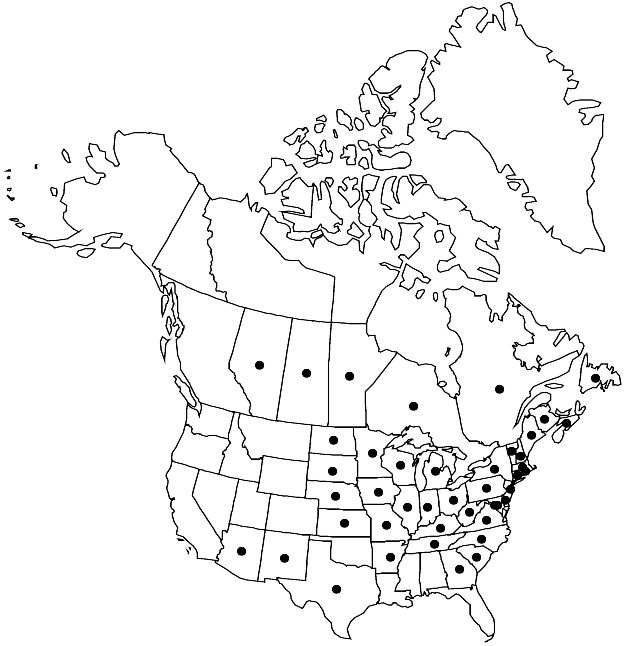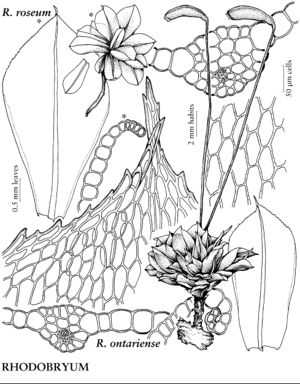Difference between revisions of "Rhodobryum ontariense"
Eur. N. Amer. Bryin. 2: 346. 1898.
imported>Volume Importer |
imported>Volume Importer |
||
| Line 56: | Line 56: | ||
|publication year=1898 | |publication year=1898 | ||
|special status=Illustrated | |special status=Illustrated | ||
| − | |source xml=https:// | + | |source xml=https://bitbucket.org/aafc-mbb/fna-data-curation/src/2e0870ddd59836b60bcf96646a41e87ea5a5943a/coarse_grained_fna_xml/V28/V28_282.xml |
|genus=Rhodobryum | |genus=Rhodobryum | ||
|species=Rhodobryum ontariense | |species=Rhodobryum ontariense | ||
Latest revision as of 21:34, 5 November 2020
Stems 1–5 cm, unbranched or rarely with slender subapical innovations. Stem leaves 18–55 in rosettes, usually more than 20, 4–10 mm; margins strongly revolute to beyond mid leaf, often nearly to apex; apex broadly acute to cuspidate; costa in rosette leaves percurrent to short-excurrent, hair-point slender, in cross section stereid band distinct, reaching dorsal epidermal layer, without intervening layer of thin-walled cells. Perichaetial inner leaves with costa long-excurrent, hair-point denticulate. Spores 16–24 µm.
Phenology: Capsules mature Nov–Feb (late fall–late winter).
Habitat: Rich soil, forests, forest edges, rotten logs, tree bases, soil over rock, rock, often calcareous, boggy sites
Elevation: low to high elevations (0-3000 m)
Distribution

Alta., Man., N.B., Nfld. and Labr. (Nfld.), N.S., Ont., Que., Sask., Ariz., Ark., Conn., Del., D.C., Ga., Ill., Ind., Iowa, Kans., Ky., Maine, Md., Mass., Mich., Minn., Mo., Nebr., N.H., N.J., N.Mex., N.Y., N.C., N.Dak., Ohio, Pa., R.I., S.C., S.Dak., Tenn., Tex., Vt., Va., W.Va., Wis., Mexico, Eurasia (India, Japan, mainland se Asia).
Discussion
Rhodobryum ontariense is a common and characteristic species of the eastern deciduous forests, occurring as far south as Arkansas and Georgia, with disjunct populations in the mountains of west Texas, New Mexico, and southeastern Arizona. The species is not found in arctic tundra and is rare in the northern boreal forests.
Selected References
None.
